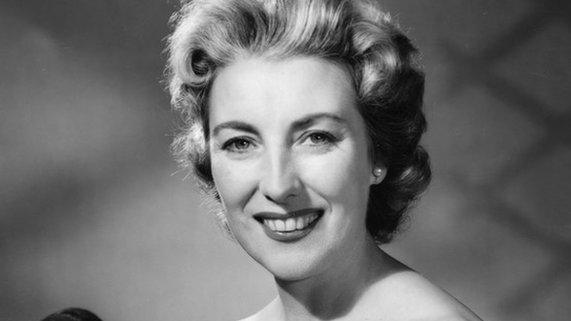In pictures: Dame Vera Lynn's life and career
- Published
Dame Vera Lynn, the singer who held a special place in the hearts of the British for keeping up morale during World War Two, has died.
These photographs tell the story of her life.
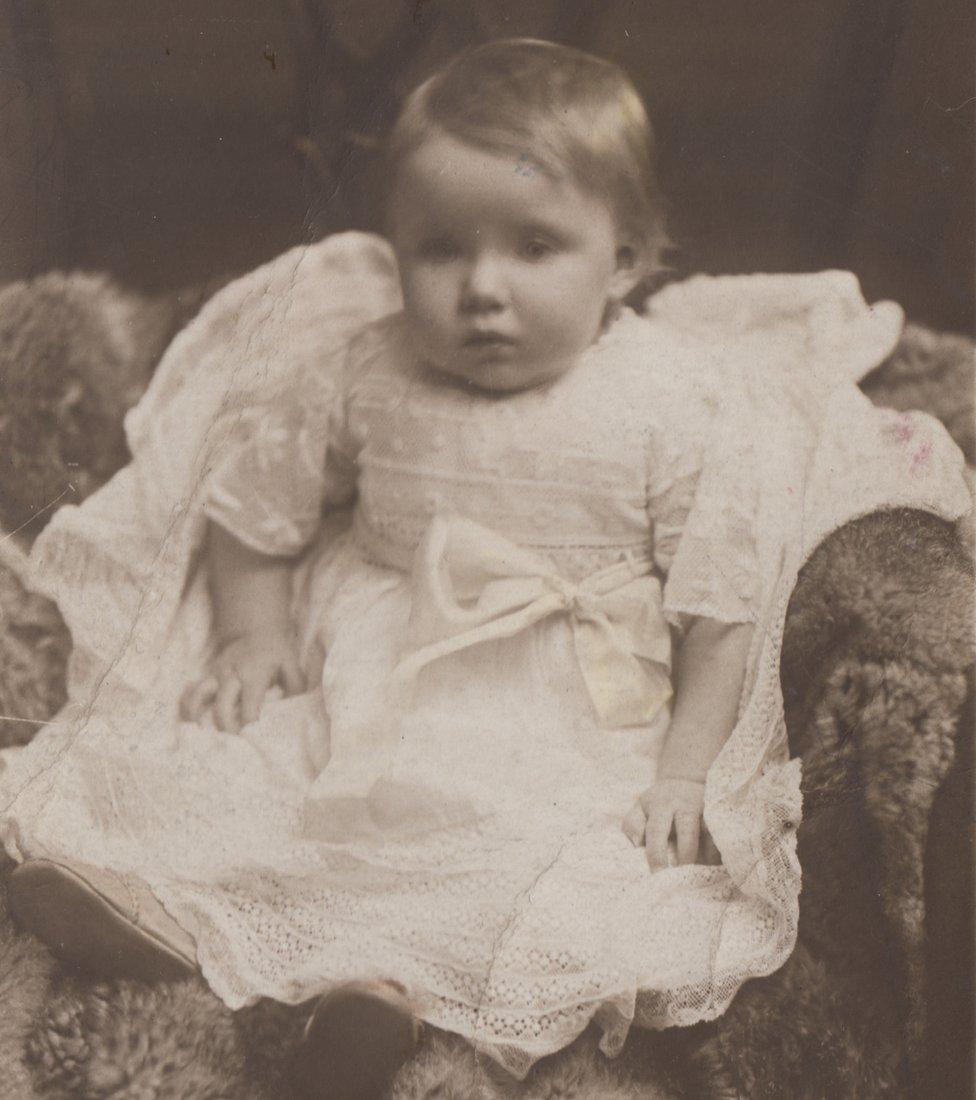

Vera Welch was born on 20 March 1917 in East Ham, London. Neither of her parents were involved in showbusiness - her father Bertram was a plumber and mother Annie a dressmaker.
But by the age of seven, the talented Vera was singing in working men's clubs - an audience she described as "great" - and soon became the family's main breadwinner.
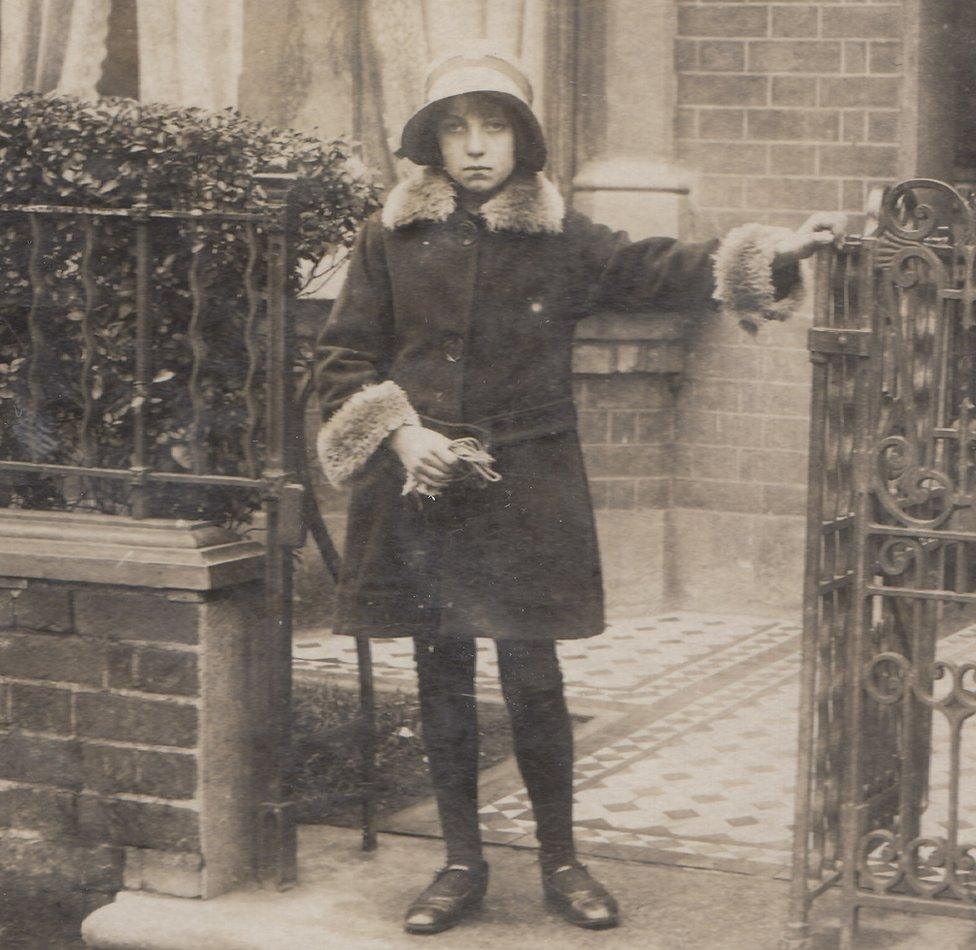

When she turned 11, Vera took her grandmother's maiden name of Lynn as a stage name. She had no formal singing lessons as a child - and just one as an adult.
She said: "I thought I could extend my range but when the teacher heard me sing she said, 'I cannot train that voice, it's not a natural voice.' So I said: 'Well thank you very much madam', and left."
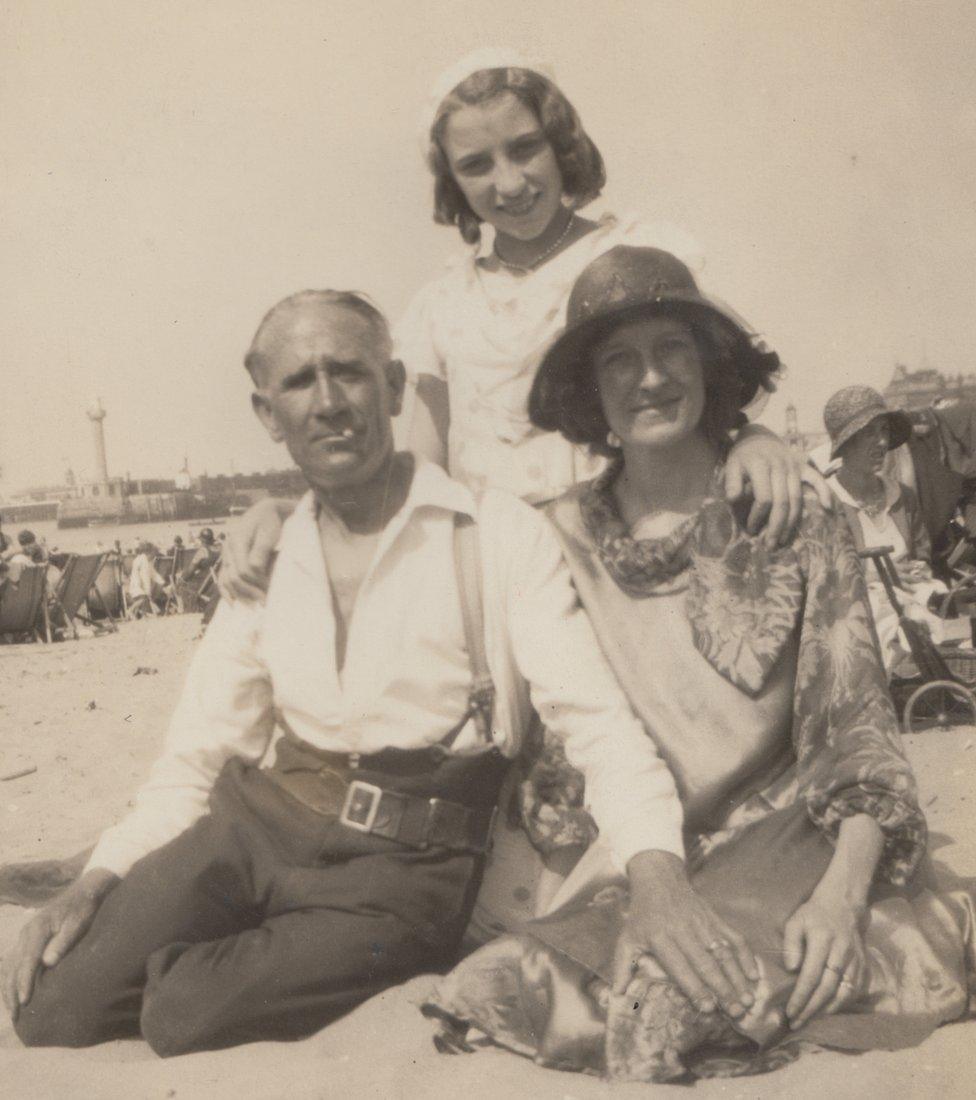

Vera's talent was spotted aged 15 while singing at Poplar Baths by local band leader Howard Baker. He signed her up on the spot. In 1936, when she was 19, she had her first solo record - called Up the Wooden Hill to Bedfordshire.
By the age of 22 she had sold more than a million records, bought her parents a house and herself a car.
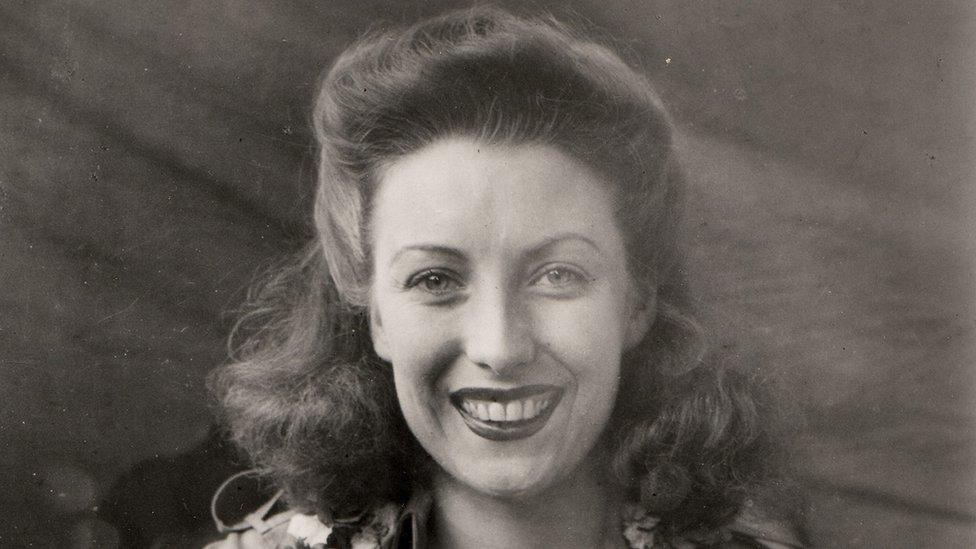
However, it was during World War Two that her reputation was made. She frequently sang to the troops at morale-boosting concerts, becoming known as The Forces' Sweetheart.
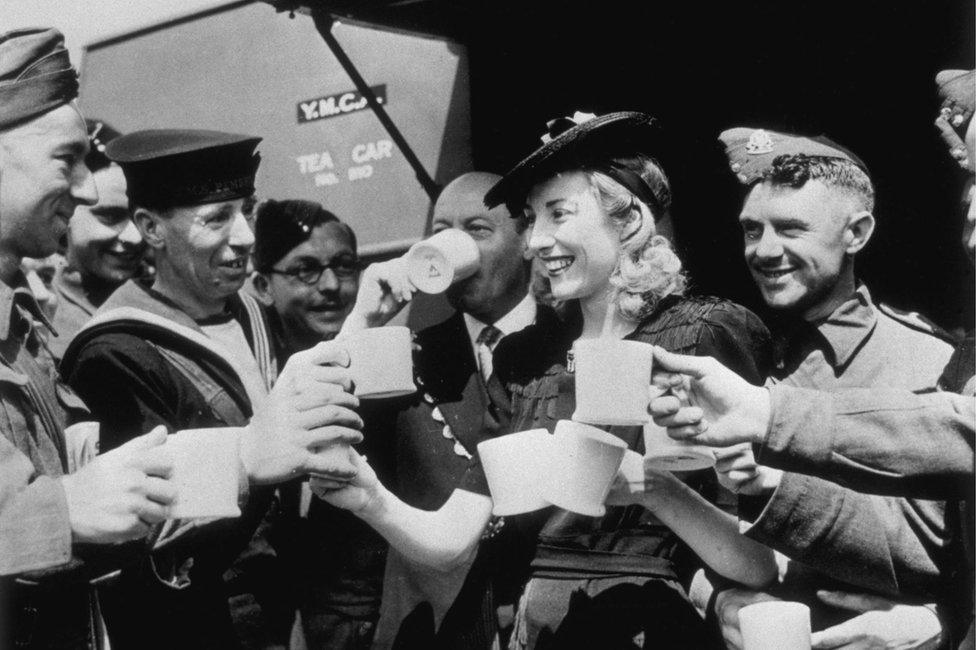
One of her most famous songs, We'll Meet Again was released in 1939 and as war progressed it increasingly resonated with the British public. As Vera said: "It's a good song as it goes with anyone anywhere saying goodbye to someone."
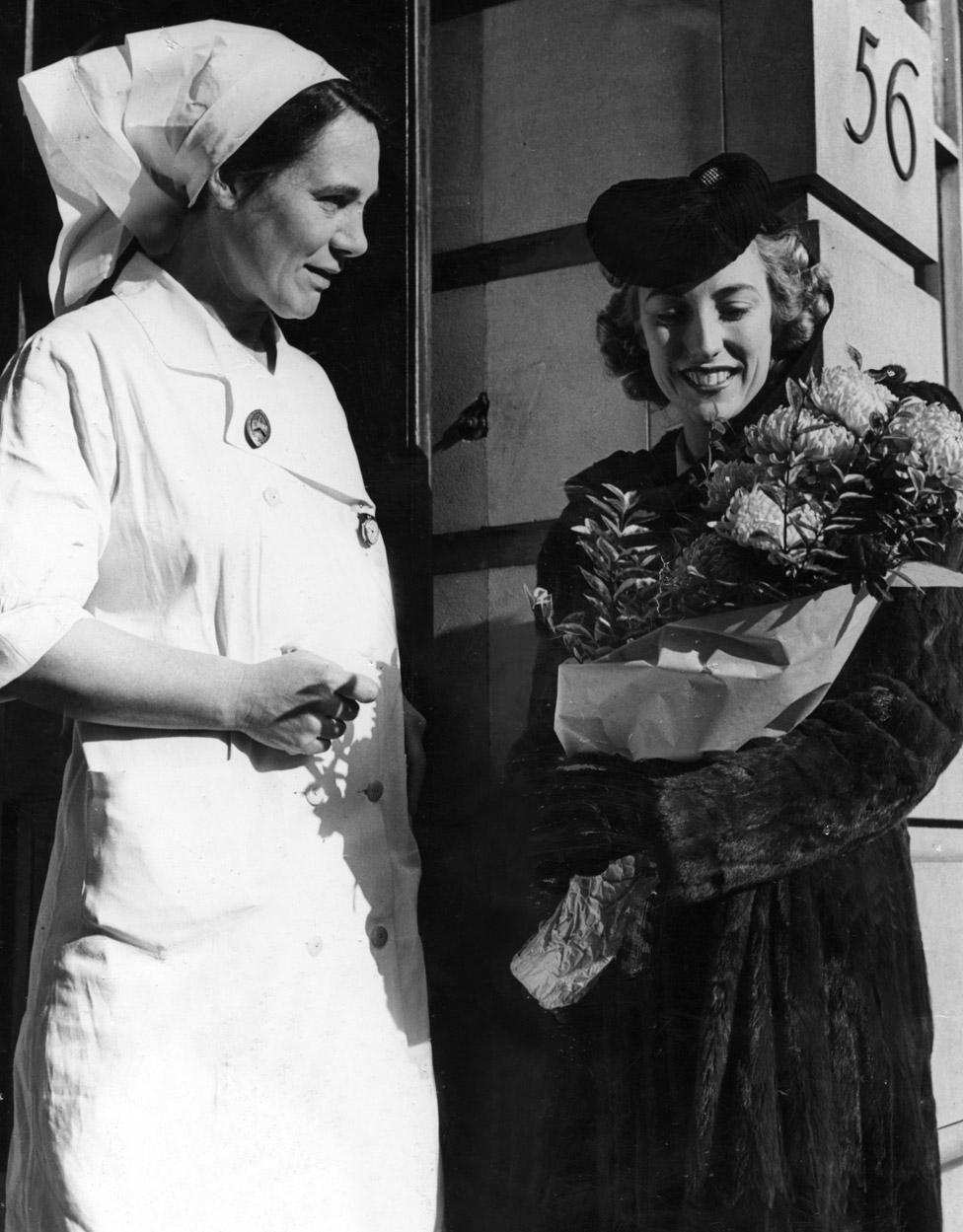

A large part of her wartime appeal came from her BBC radio programme Sincerely Yours, which ran in 1941 and 42 in the form of "a letter to the men of the Forces… in words and music". One feature was announcing the arrival of babies back home - but that had to be cancelled because producers were so overwhelmed with news of new arrivals.
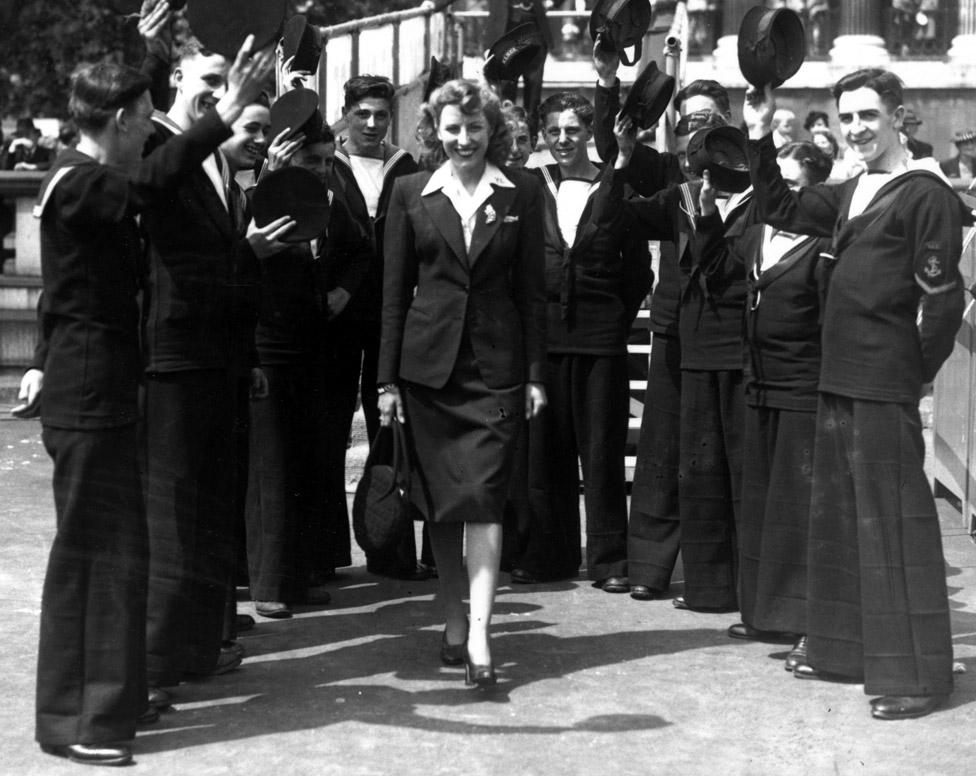
She had a wholesome appeal that made her a favourite with families as well as the troops. Not everyone thought she was good for morale, however - one retired soldier complained in a letter to The Daily Telegraph that such "sickly and maudlin programmes are largely responsible for the half-hearted attitude of so many people towards the war".
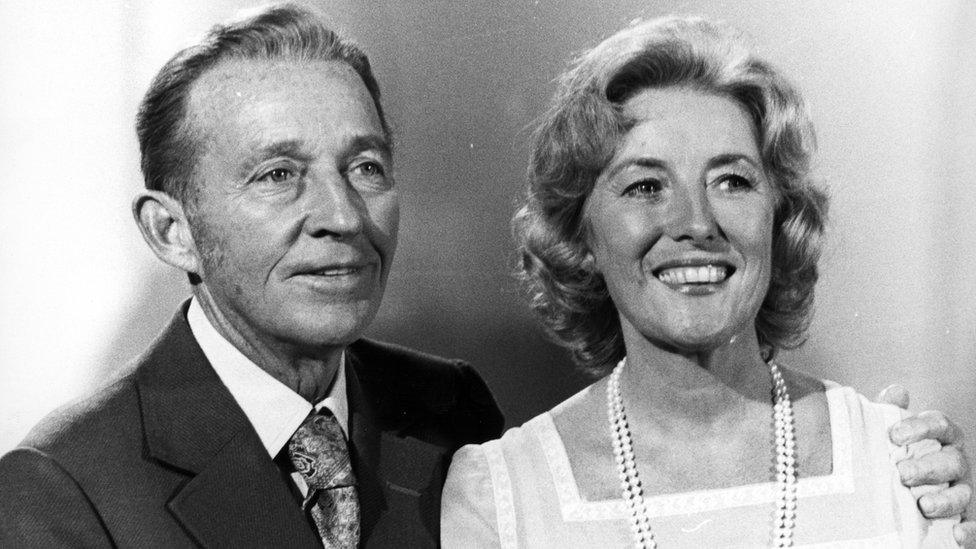
But her popularity was such that she was voted the British Expeditionary Forces' favourite singer, beating Bing Crosby - with whom she's pictured - and Judy Garland.
She travelled the world to entertain troops, including to Myanmar (then Burma), India and Egypt. She later recalled staying in grass huts and using a bucket of water for a shower.
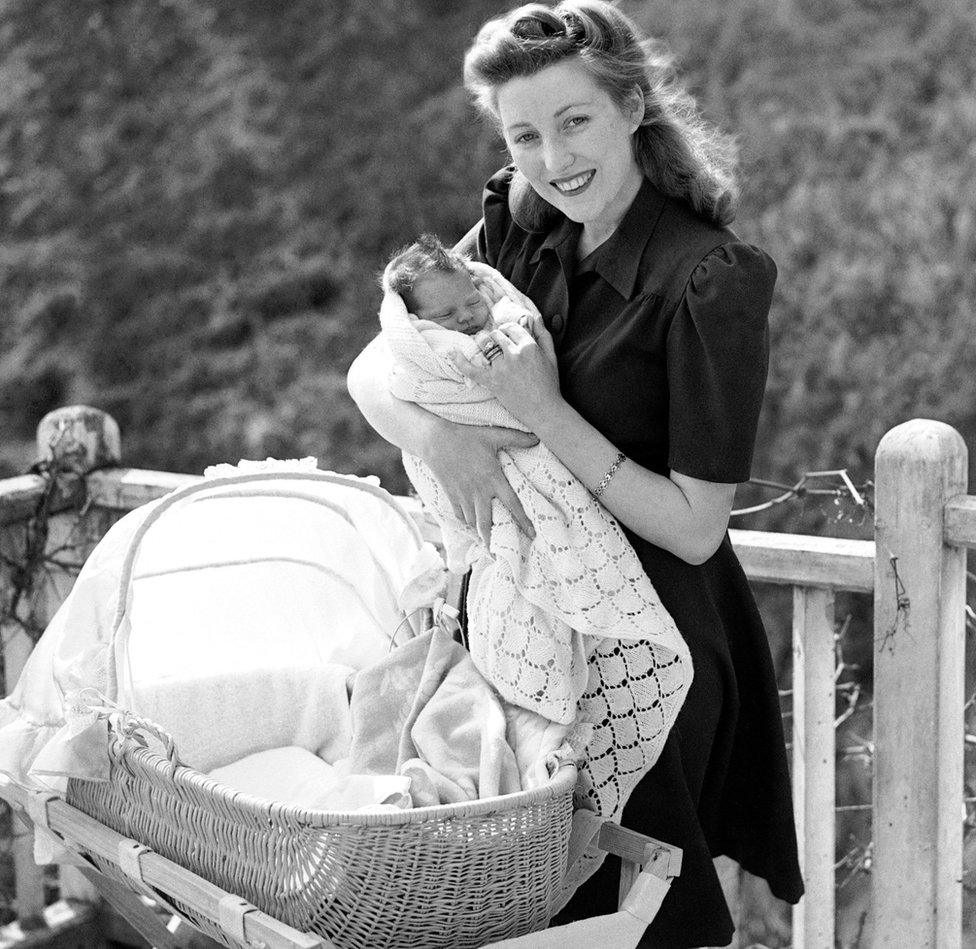
In 1941 Vera married Harry Lewis. They had one daughter, Virginia, and lived together in Ditchling, East Sussex, for 58 years until his death in 1999.
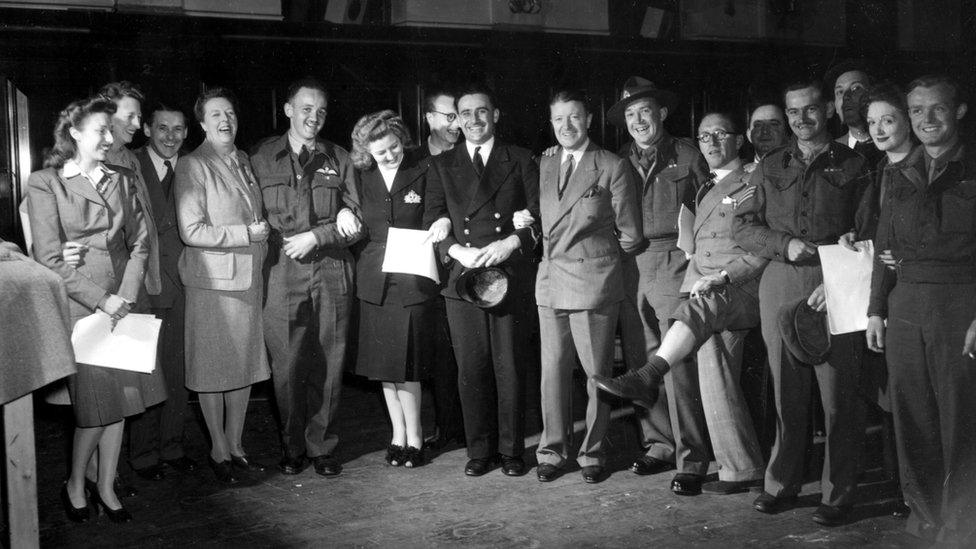
Following the defeat of Nazi Germany, the BBC Variety Department broadcast a victory programme on VE Day in May 1945. Vera (far left) was joined by entertainers and returned British Prisoners of War. Her popularity survived the war years and after peace came she toured all over the Commonwealth, appeared in a Las Vegas cabaret, and performed for the British Royal Family.
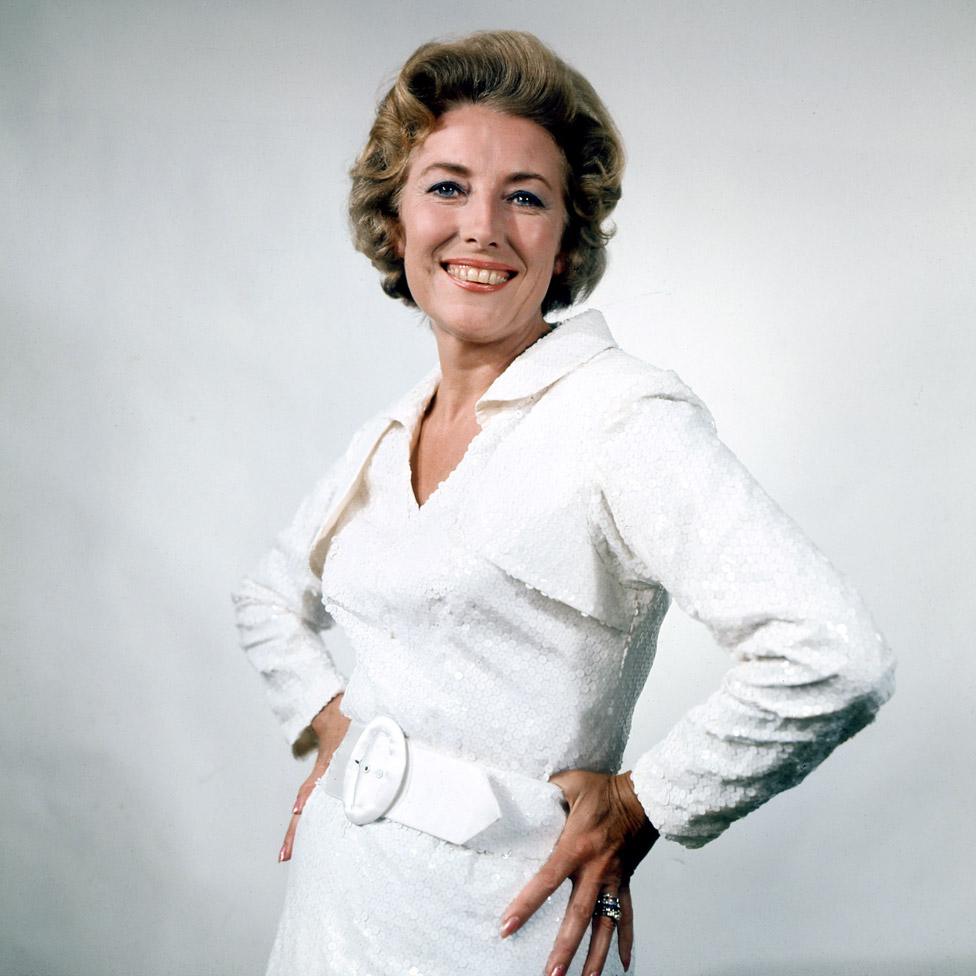
Her sentimental tone went out of fashion at the BBC after the war, but she returned to the airwaves and remained a fixture throughout the 1950s, 60s and 70s. In the very first official UK singles chart in 1952, she occupied three of the top 12 places.
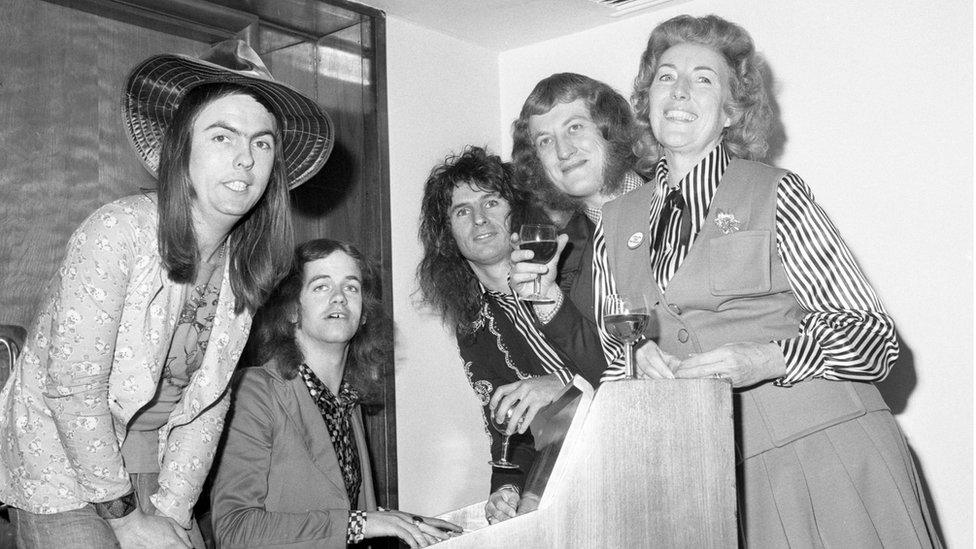
She's pictured here making the acquaintance of glam rock band Slade in 1973, when they gathered round a piano at the Melody Maker Awards. In 2017 she released her latest album, and holds the record for being the oldest living artist to achieve a top 20 UK album.
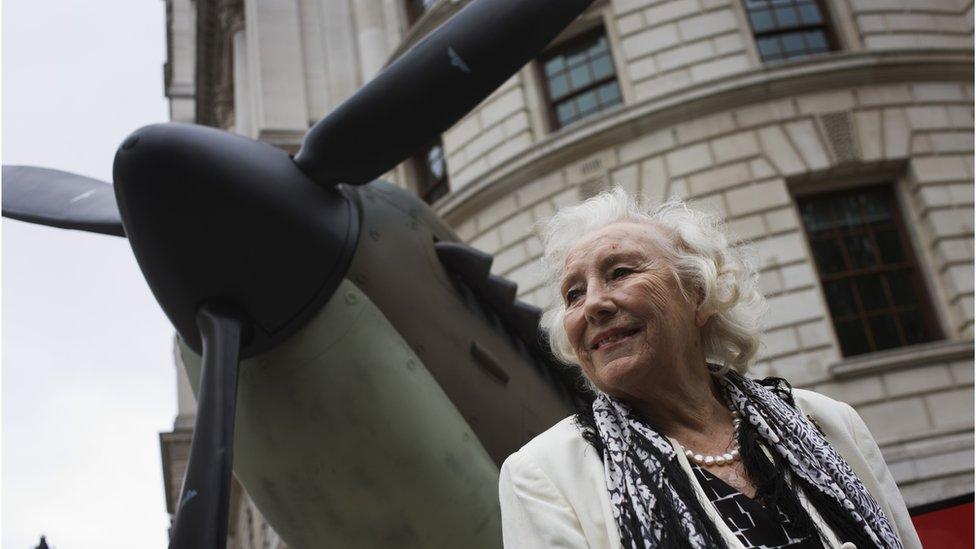
Dame Vera helped mark the 70th anniversary of the Battle of Britain in a ceremony on 10 August 2010. Her daughter said fan letters continued to arrive from all over the world, sometimes simply addressed to "Vera Lynn, UK".
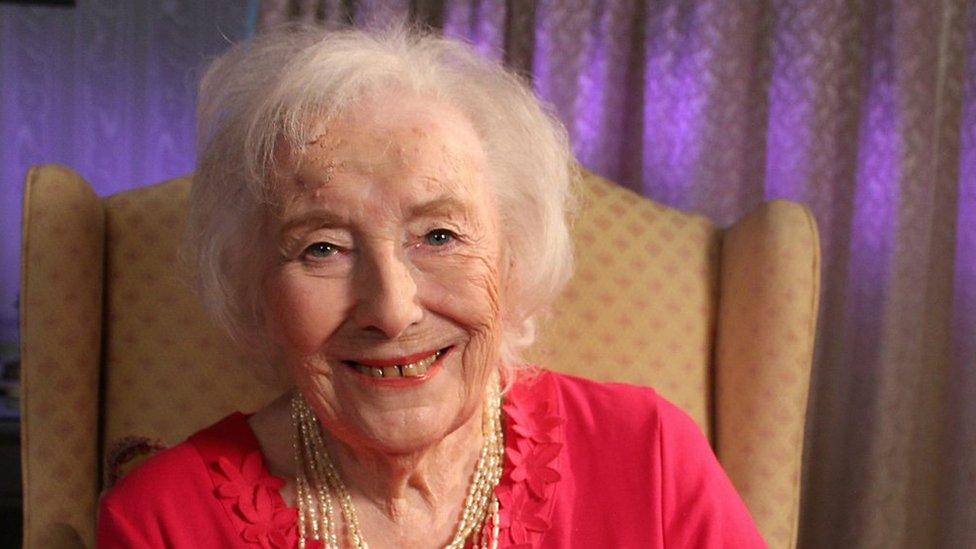
During the build-up to her 100th birthday in 2017, Dame Vera said she found it "humbling" that people still enjoyed her songs.
The Queen wrote to her: "You cheered and uplifted us all in the war and after the war, and I am sure that this evening the blue birds of Dover will be flying over to wish you a happy anniversary."
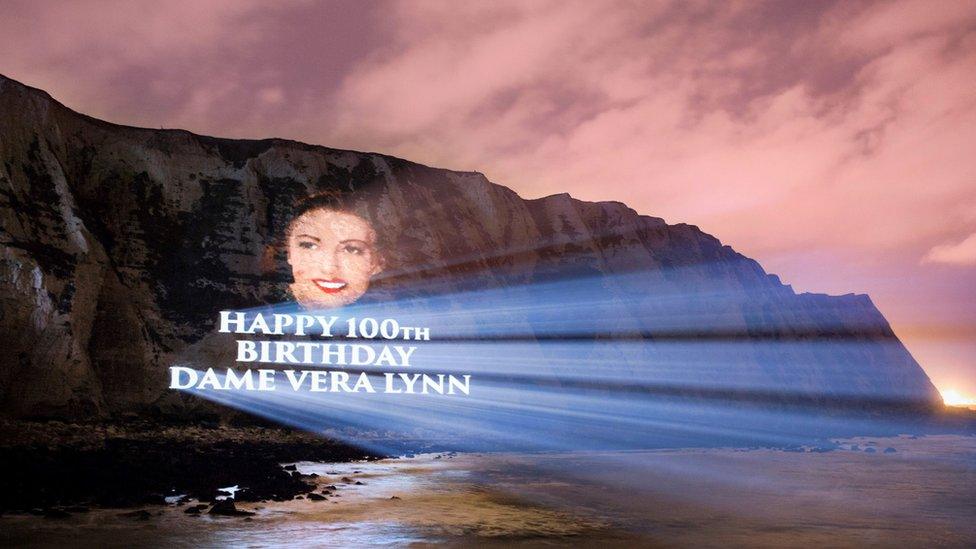
Dame Vera's portrait was projected on to the White Cliffs of Dover to celebrate her 100th birthday. She said it was "an unprecedented honour to have it marked in such a beautiful way".
- Published18 June 2020
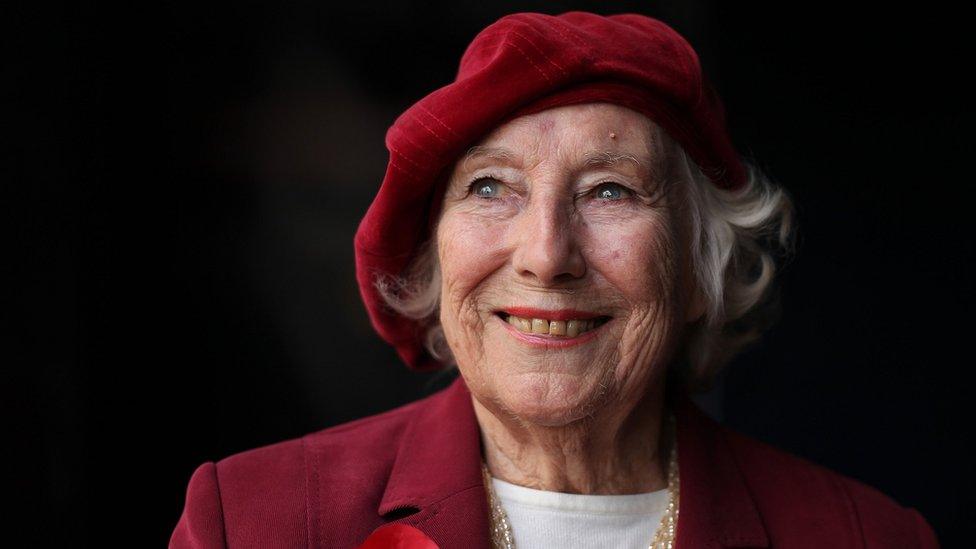
- Published18 June 2020
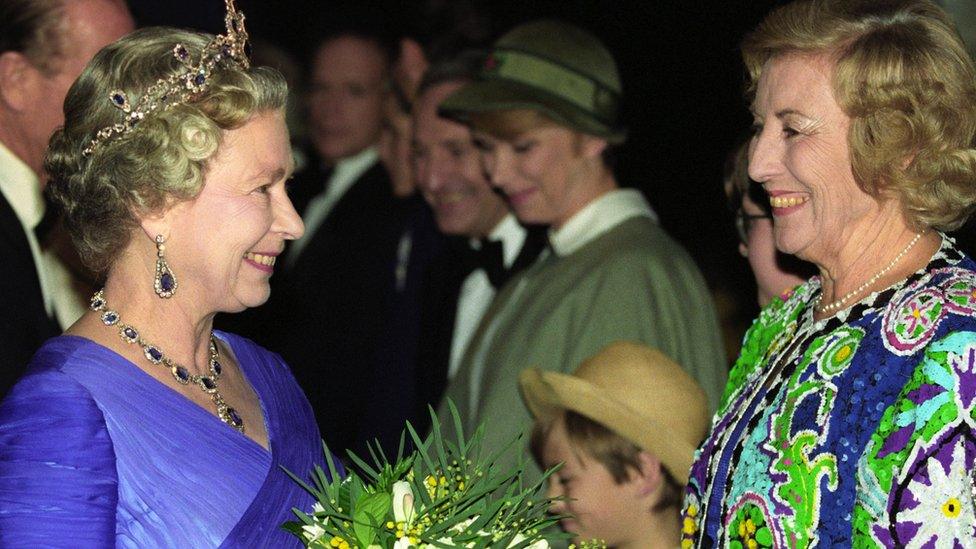
- Published18 June 2020
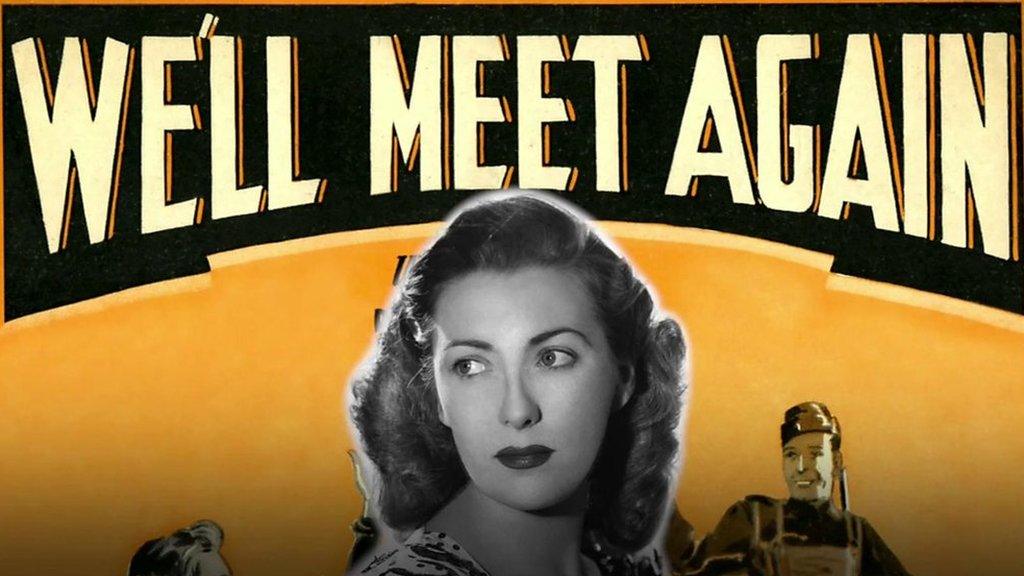
- Published18 June 2020
